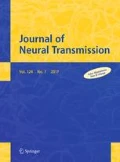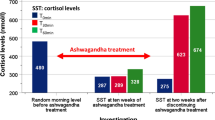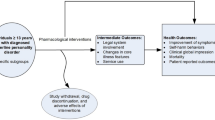Summary.
We assessed a total range of peripheral thyroid hormone fractions, binding globulins, and thyroid-active antibodies in 37 medication-free, violent or sexual offenders, aged 17–45 years, to describe possible mechanisms involved in the thyroid metabolism of aggressive men. The ratio between T3 and T4 correlated with ratings of psychopathy, indicating increased peripheral deiodination as a biological covariate to callous personality traits. Autoimmune antibodies, hepatic failure, abnormal binding globulins, or substance abuse did not affect the association.
Similar content being viewed by others
Author information
Authors and Affiliations
Rights and permissions
About this article
Cite this article
Soderstrom, H., Forsman, A. Elevated triiodothyronine in psychopathy – possible physiological mechanisms. J Neural Transm 111, 739–744 (2004). https://doi.org/10.1007/s00702-004-0137-8
Received:
Accepted:
Published:
Issue Date:
DOI: https://doi.org/10.1007/s00702-004-0137-8




